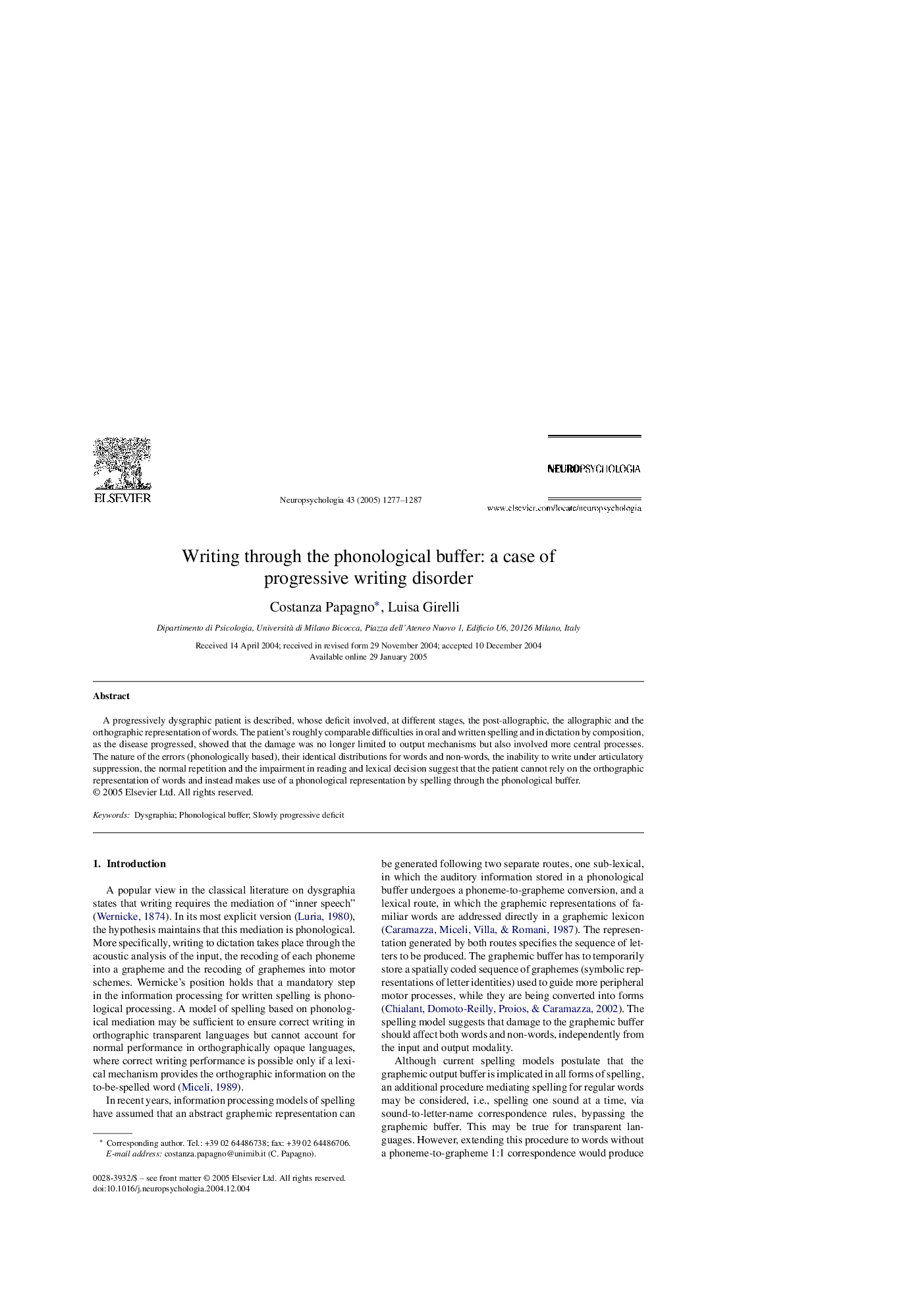| Article ID | Journal | Published Year | Pages | File Type |
|---|---|---|---|---|
| 10467332 | Neuropsychologia | 2005 | 11 Pages |
Abstract
A progressively dysgraphic patient is described, whose deficit involved, at different stages, the post-allographic, the allographic and the orthographic representation of words. The patient's roughly comparable difficulties in oral and written spelling and in dictation by composition, as the disease progressed, showed that the damage was no longer limited to output mechanisms but also involved more central processes. The nature of the errors (phonologically based), their identical distributions for words and non-words, the inability to write under articulatory suppression, the normal repetition and the impairment in reading and lexical decision suggest that the patient cannot rely on the orthographic representation of words and instead makes use of a phonological representation by spelling through the phonological buffer.
Keywords
Related Topics
Life Sciences
Neuroscience
Behavioral Neuroscience
Authors
Costanza Papagno, Luisa Girelli,
